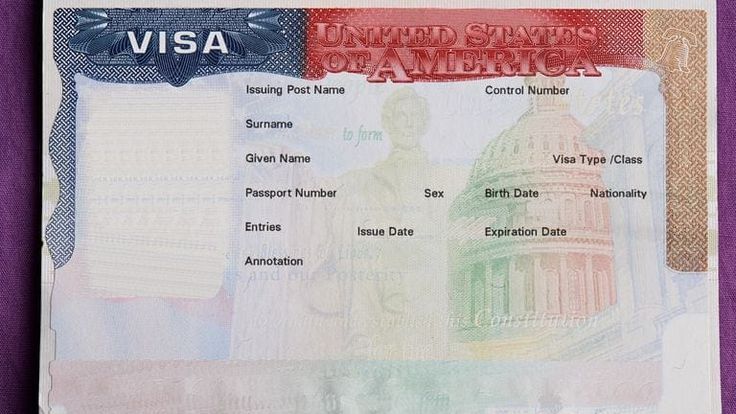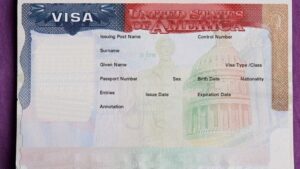The U.S. Department of State has officially ended the long-standing practice of third-country nonimmigrant visa adjudication, effective September 6, 2025. This means that visa applicants can no longer choose to process their U.S. visa in a country where they are temporarily visiting or transiting. Instead, they are now required to apply in their country of nationality or the country where they hold legal residence.
This change has major implications for millions of applicants worldwide, including students, tourists, workers, and professionals from Nigeria and other countries who often relied on third-country processing to avoid long wait times or bureaucratic backlogs at home.
What Has Changed
Until now, U.S. embassies and consulates in many countries accepted applications from “third-country nationals,” meaning individuals who were not residents or citizens of the country where the U.S. embassy was located. For example, a Nigerian student studying in Ghana could apply for a U.S. visa at the U.S. Embassy in Accra, even without Ghanaian residency.
With the new policy, this option has been eliminated. The Department of State now requires all nonimmigrant visa applications to be processed in the applicant’s home country (nationality) or in the country of legal residence.
Why the Change Matters
The end of third-country adjudication represents a fundamental shift in U.S. visa policy. Here are some of the key reasons it matters:
-
Reduced Flexibility for Applicants
Many applicants who previously applied in countries with shorter wait times will now be restricted to applying in their home country. For Nigerians, this means U.S. visa applications must be made at the U.S. Embassy in Abuja or the Consulate in Lagos, even if wait times are long. -
Impact on International Students and Workers
Students studying abroad in countries where they are not permanent residents may face added challenges. For instance, Nigerian students in Kenya or South Africa who want to apply for a U.S. F-1 student visa or H-1B work visa will no longer be able to do so in their host country unless they have legal residency there. -
Backlogs and Longer Wait Times
Many embassies in Africa and Asia, including Nigeria, already face long appointment wait times. The elimination of third-country adjudication could worsen these backlogs as more applicants are funneled into fewer locations. -
Stricter Compliance
The policy reflects the U.S. government’s effort to streamline security checks and ensure that visa adjudication happens where applicants’ background and residency can be more easily verified.
Who Is Affected
The policy applies to all nonimmigrant visa categories, including:
-
Tourist visas (B1/B2)
-
Student visas (F and M)
-
Exchange visitor visas (J)
-
Temporary worker visas (H, L, O, P)
-
Business visas
Immigrant visas (green cards) are not directly affected by this change, but applicants should note that processing routes for immigrant visas remain tied to country of residence.
Exceptions and Special Cases
While the general rule now requires applicants to apply in their home country or country of residence, there may still be narrow exceptions, such as:
-
Emergency situations where an applicant cannot safely return home due to conflict or political instability.
-
Special government-to-government arrangements in regions with unique circumstances.
However, these exceptions are not widely defined and will likely be rare. Applicants should not rely on third-country embassies for visa appointments going forward.
What Nigerians Should Do
For Nigerian applicants, this new policy makes preparation more important than ever. Here are steps to take:
-
Plan Early: Visa interview wait times in Nigeria can be lengthy. Apply well in advance of your intended travel date.
-
Prepare Documentation: Ensure you have all required documents, including valid passports, financial statements, proof of ties to Nigeria, and supporting letters.
-
Use Legal Residency if Abroad: If you are studying or working abroad with valid residency, you can apply for your U.S. visa from that country. But if you are there only on a temporary stay or tourist visa, you will need to return to Nigeria for processing.
-
Stay Updated: Policies can change quickly. Always check the U.S. Embassy Nigeria website for the latest guidance.
The end of third-country nonimmigrant visa adjudication is one of the most significant changes in U.S. visa policy in recent years. While it is intended to streamline processes and tighten security, it places added responsibility on applicants, particularly Nigerians and others from regions with high visa demand and long wait times.
For prospective travelers, students, and workers, the key is early planning and preparation. The era of “visa shopping” in neighboring countries is over, and applicants must now adapt to a system centered on home-country processing.
Book a one-on-one consultation for guidance tailored to your goals: https://selar.com/Book.A.Session









